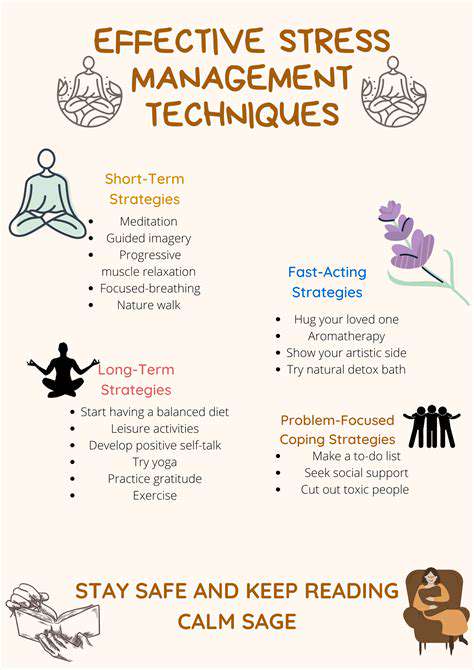Causes of a Sensitive Sore Scalp
1. Skin Conditions
One of the primary causes of a sensitive sore scalp is the presence of skin conditions such as eczema and psoriasis. These conditions can lead to inflammation, leading to discomfort and tenderness.
Eczema, for instance, is characterized by dry, itchy patches that can become painfully sore if scratched. This can result in a cycle of irritation that exacerbates sensitivity.
Psoriasis, on the other hand, may cause red, scaly patches that can crack and bleed, creating a painful environment on the scalp.
Both conditions may require specific treatments, including medicated shampoos or topical steroids, to manage flare-ups effectively.
2. Allergic Reactions
Allergic reactions to hair products, such as shampoos, conditioners, and dyes, can lead to scalp sensitivity. Ingredients like fragrances, preservatives, and certain chemicals can irritate the skin.
People with sensitive skin are particularly susceptible to these reactions. A sudden change in product formulation or the introduction of a new product can trigger an allergic response.
Symptoms may include redness, itching, and swelling of the scalp, accompanied by a burning sensation that can be very uncomfortable.
Identifying and eliminating any offending products is crucial for relief, as well as considering hypoallergenic alternatives that are gentler on the skin.
3. Unsuitable Hair Care Practices
Improper hair care practices can contribute significantly to a sensitive sore scalp. Over-washing or under-washing hair can disrupt the natural balance of oils on the scalp.
Using excessively hot water during washing, as well as vigorous scrubbing, can strip the scalp of its natural moisture, leading to dryness and irritation.
Additionally, tight hairstyles such as ponytails or braids can cause tension and soreness at the hair roots, further contributing to sensitivity.
Adopting gentler hair care methods, such as using lukewarm water and avoiding tight styles, can help maintain a healthier scalp.
4. Environmental Factors
Environmental factors also play a significant role in scalp sensitivity. Changes in weather conditions, such as cold winds or intense heat, can dry out the scalp and lead to discomfort.
Excessive sun exposure can also burn the scalp, causing sensitivity and pain. Wearing hats or using UV protection sprays can help safeguard the scalp against such damage.
Furthermore, dry indoor air, often caused by heating systems in winter, can exacerbate dryness and sensitivity. Using a humidifier can help maintain moisture levels in the air.
Being mindful of environmental impacts and adopting preventive measures can assist in alleviating scalp sensitivity and improving overall scalp health.
Signs and Symptoms to Look Out For

Common Signs of a Sensitive Scalp
A sensitive scalp can manifest in various ways, making it crucial to identify the symptoms early. Symptoms may include itching, tenderness, and redness on the scalp, which might indicate irritation or inflammation. People often overlook these signs, assuming they are typical occurrences.
In some cases, individuals may experience sensations of burning or stinging, especially when using certain hair products. This discomfort can significantly impact daily activities, prompting the need for effective relief strategies.
Potential Triggers for Scalp Sensitivity
Understanding what triggers your sensitive scalp is essential for preventing future episodes. Common triggers include exposure to harsh chemicals in hair products, which can strip the scalp of its natural oils.
Environmental factors such as sun exposure, extreme cold, or pollution can also lead to increased sensitivity. Recognizing these triggers can help you modify your hair care routine to minimize discomfort.
How to Identify a More Serious Condition
While many cases of a sensitive scalp are benign, it's important to know when to seek medical advice. If symptoms persist despite home remedies, or if you notice pus, swelling, or severe pain, it may indicate an underlying condition.
Conditions such as psoriasis, dermatitis, or infections may require professional intervention. Early diagnosis and treatment can not only alleviate discomfort but also prevent more severe complications.
Effective Relief Methods for a Sensitive Scalp
Implementing soothing practices can provide significant relief for a sensitive scalp. Utilizing gentle, natural shampoos without sulfates or fragrances is often advisable to avoid irritation.
Incorporating soothing ingredients such as aloe vera or tea tree oil can also assist in calming inflammation. Additionally, regular scalp massages can stimulate blood flow and promote relaxation, helping to alleviate sensitivity.
Effective Relief Strategies

Identifying Triggers for Scalp Sensitivity
Understanding what triggers sensitivity on your scalp is crucial for effective management. Common causes include allergic reactions to hair products that can lead to irritation and discomfort. Keeping a diary to track product use and symptoms can help identify these triggers.
Environmental factors, such as weather conditions and pollutants, can also play a role in scalp sensitivity. For instance, cold temperatures may dry out your scalp, while excessive sun exposure could lead to sunburn. Observing how different environmental conditions affect your scalp can provide insights into necessary changes.
Moreover,
stress and hormonal changes may contribute to scalp sensitivity. These factors can exacerbate existing conditions or create new sensitivities, making it essential to consider lifestyle changes as part of an effective relief strategy.
Natural Remedies and Treatments
Many individuals find relief from a sensitive scalp through natural remedies. For instance, aloe vera is known for its soothing properties and can be applied directly to the scalp to reduce irritation. Additionally, coconut oil can hydrate and nourish the scalp, helping to alleviate dryness and discomfort.
Herbal rinses using ingredients like chamomile or green tea can also provide calming effects on sensitive skin. These natural remedies can be gentle alternatives to commercial products that might contain harsh chemicals. Incorporating these rinses into your routine may improve scalp health over time.
It's important to remember that while natural remedies can be beneficial, they might not work for everyone. Consulting a healthcare professional or dermatologist can help tailor an approach that works specifically for your needs.
Over-the-Counter Solutions
If natural remedies do not provide sufficient relief, over-the-counter solutions may be a viable option. There are various medicated shampoos available that are formulated to address scalp sensitivity. Look for products containing ingredients like salicylic acid or coal tar, which can help soothe irritation and control flaking.
Topical corticosteroids are another common solution for reducing inflammation and discomfort. These can be particularly effective for conditions like psoriasis or dermatitis that may contribute to a sensitive scalp. However, it's advisable to use these treatments under the guidance of a healthcare professional.
In addition, moisturizing conditioners can help maintain hydration in the scalp and reduce sensitivity. Regular use of these products can prevent dryness and promote overall scalp health.